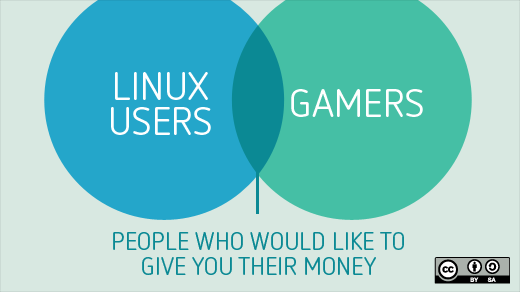The Desura game client is not only available for open-source-loving players, but also now for developers. They've released the client on Github as Desurium under GPL v3.
Desura is similar to the Steam gaming platform in that they both are a way for gamers to buy
downloadable copies of a lot of really great games, often for equally great prices. Desura adds the option for developers to include Desura-only functionality in their games.
Desura first offered a Linux client last fall. Steam, however, lags on that option. Regular rumors surface about a Steam client being released for Linux, and this week saw the next round. The IronHammers blog pointed to a Valve job posting for a senior software engineer, which specifies one of the job's responsibilities as "port[ing] Windows-based games to the Linux platform."
Linux gamers are a ripe market, just waiting to hand their money over to someone who can offer the titles they want. When 2dboy released World of Goo on Linux, it accounted for 4.6% of the site's downloads after only two days and sold more copies on that day than on any day in history, beating the previous sales record by 40%. Those who buy the Humble Bundle--available both through Steam and Desura--consistently pay more for the games on Linux than other platforms. For the most recent Humble Bundle, the average Windows user paid $4.87, the average Mac user $7.61, and the average Linux user $10.45.







7 Comments